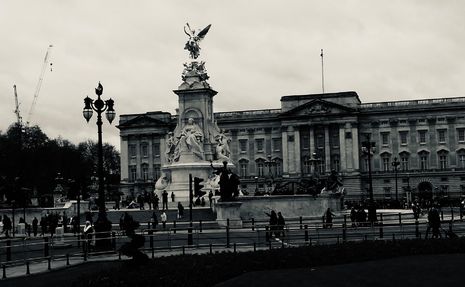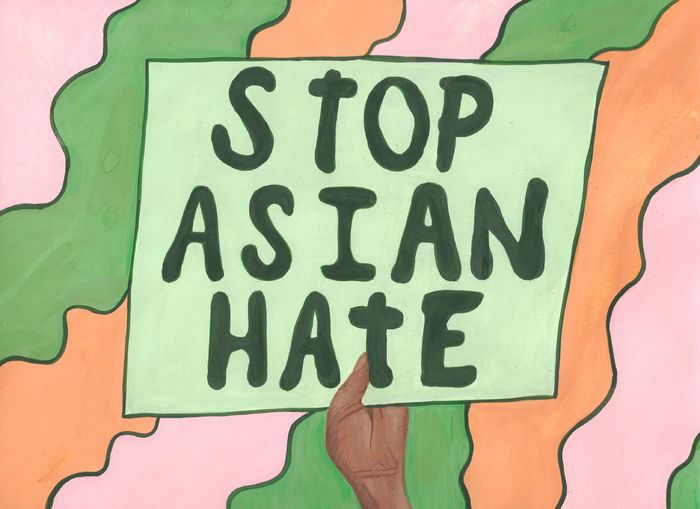Remembering a “Quirky” Royal
Staff Writer Swathi Manivannan explore her conflicting feelings towards Prince Phillip’s death having grown up in post-independence Singapore

I found out about Prince Philip’s demise, as I do most of my news these days, on Twitter.
Twitter is a polarising platform at the best of times, and the day of Prince Philip’s passing was no exception. On one hand, there were people paying tribute to the late Duke of Edinburgh by recounting their lovely personal anecdotes of meeting him. On the other hand, there were entire threads and links to articles ‘exposing’ the Prince’s history of bigoted remarks about anyone who wasn’t a cishet man of white European ancestry. Or as the Times liked to call him, a man who was unafraid of “speaking his mind” and made “quirky” remarks that “made [us] laugh”.
“After all, colonialism has left its mark everywhere in post-independence Singapore”
Days later, I’m still on the fence about how I should feel about the death of Prince Philip. But the differing reactions to his passing have also made me reflect on how we should view the British monarchy as a whole. After all, he was but a part of this institution, and his comments are a mere reflection of its centuries-long legacy of being one of the largest (and bloodiest) empires in history.
As someone who grew up in a former British colony, it is perhaps rather surprising how little attention I paid to the effects of colonialism growing up. After all, colonialism has left its mark everywhere in post-independence Singapore. My secondary school was named after Sir Stamford Raffles, who declared Singapore a colony of the Empire, and we even had a bust of him in our school foyer. Several places are named after Queen Victoria — a concert hall, a couple of schools, the road on which our National Library sits — and our first major satellite town was named Queenstown in honour of Queen Elizabeth II’s coronation. All of this, without going into how our parliamentary system is mostly based on Westminster, how our legal system is based on the English common law, and even how our O and A-Level exams are still marked by examiners in Cambridge every December.
I think this could partially be attributed to how we were taught about our colonial history in Singapore. My parents’ history lessons in India described in detail the numerous atrocities amidst the fights for independence during colonial rule. By contrast, in Singapore, we were taught that for the most part, being a British colony was beneficial and instrumental in shaping the island into an integral port in the Malay Archipelago. More recently, we even commemorated our bicentennial anniversary of being declared a British colony, something I doubt any other former colony would have done.
“But in hindsight, it should not have surprised me, considering that the Royal Family’s legacy has been so carefully curated to only show us the good”
But my initial indifference towards my country’s colonial past didn’t mean that I was completely unaffected, particularly when reading children’s classics. Growing up, I recall having a specific distaste for The Secret Garden, which I later attributed to the extremely unflattering depiction of Indians (“You thought I was a native! You dare!”) I also remember how the underlying racial determinism in the Chronicles of Narnia (see the depiction of the Calormenes in the Horse and his Boy) left a particularly bad taste in my mouth.
Over the years, it got increasingly difficult to remain indifferent. How could I, when my ecology lecturers talked about Singapore’s drastic deforestation without even acknowledging that it was partly a result of colonialist action? When I’d see Winston Churchill, a staunch imperialist, being described and portrayed in media as Britain’s “saviour” during the Second World War? When talking to my friends made me realise how little the students in the very country that birthed the British Empire were actually taught about it?
We are told that we shouldn’t speak ill of the dead, but how do we deal with the ill-will that the dead might have harboured towards others? Is it right for us to remember the late royal as someone who “spoke his mind” when that meant that he made casually racist and sexist remarks others were afraid of vocalising?
How should we, then, remember Prince Philip’s legacy? This question comes at a time where the Royal Family has been subject to many a scandal, particularly in light of Oprah’s interview with Meghan Markle and Prince Harry. As I watched snippets of the interview, what really surprised me at first was how so many people were flabbergasted that Meghan was subject to bigotry. But, in hindsight, it should not have surprised me, considering that the Royal Family’s legacy has been so carefully curated to only show us the good. Many of us (myself included) forget that the Royals, while having a lot of influence and power, are also flawed human beings who did some not-so-great things, which have had a lasting impact to this day. After all, even in Singapore, we also forget that the British created racial stereotypes, particularly against the Malay natives, that are still upheld by many Singaporeans today.
I think it’s high time we call a spade a spade and stop defending the harmful words and actions of imperialists, no matter how “well-intentioned” or “benevolent” they might have been. Now more than ever, the UK needs to come to terms with the truth of its history and the role the Royal Family played in it. A good start might be to reflect on the legacy Prince Philip left behind, flaws and all.
 News / Clare Hall spent over £500k opposing busway 24 December 2025
News / Clare Hall spent over £500k opposing busway 24 December 2025 News / Caius mourns its tree-mendous loss23 December 2025
News / Caius mourns its tree-mendous loss23 December 2025 Comment / The ‘class’ of Cambridge24 December 2025
Comment / The ‘class’ of Cambridge24 December 2025 Comment / Yes, I’m brown – but I have more important things to say22 December 2025
Comment / Yes, I’m brown – but I have more important things to say22 December 2025 Interviews / Politics, your own way: Tilly Middlehurst on speaking out21 December 2025
Interviews / Politics, your own way: Tilly Middlehurst on speaking out21 December 2025










